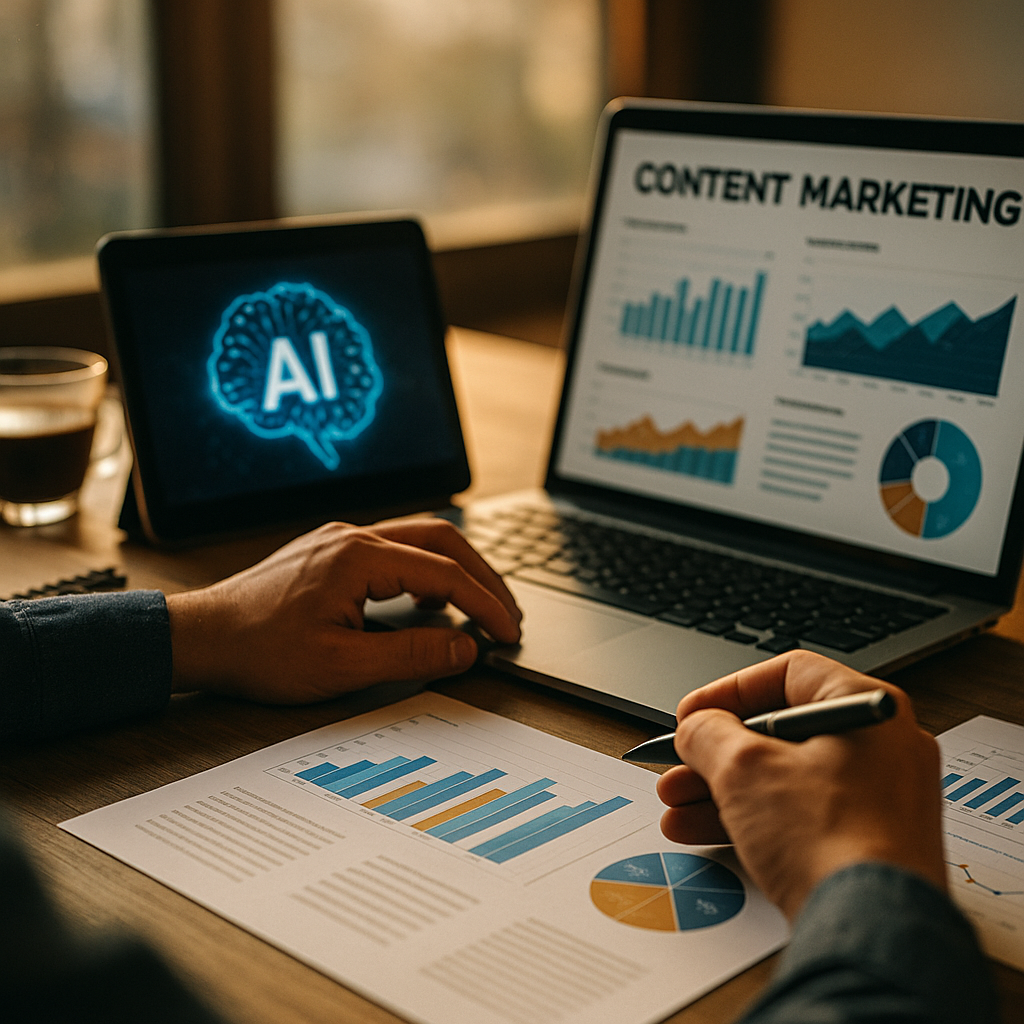Using AI to analyze and predict the performance of your content marketing strategies can drive higher ROI, unlock audience insights, and save significant time. In 2025, AI-driven analytics are shaping the future of digital marketing efficiency and impact. Curious how AI can take your content strategy to the next level? Read on to discover the transformative advantages and practical steps involved.
What Is AI-Powered Content Performance Analysis?
AI-powered content performance analysis refers to leveraging artificial intelligence technologies, such as machine learning algorithms and natural language processing, to assess the effectiveness of your content marketing. Instead of manually sifting through metrics and drawing conclusions, marketers can now rely on advanced algorithms that:
- Detect trending topics and emerging user interests.
- Analyze engagement patterns across platforms.
- Uncover demographic and psychographic insights about audiences.
- Attribute conversions to specific content assets.
This shift streamlines reporting and empowers marketers to make data-backed decisions, ensuring every content piece is optimized for maximum impact.
How AI Predicts Content Marketing Success
Predicting the success of content marketing campaigns involves more than just reviewing historical data. AI tools use predictive analytics to forecast which pieces of content will resonate based on:
- Past engagement rates and time-on-page metrics
- User behavior trends and segmentation
- Keyword opportunities and search intent signals
- Competitor benchmarking
For example, in 2025, leading AI platforms integrate real-time data from search engines and social media channels to suggest topics likely to gain traction. Predictive scoring helps marketers prioritize content ideas with statistical confidence, reducing guesswork and resource waste.
Implementing AI Content Analysis Tools Effectively
To maximize the benefits of AI for content marketing analysis, it is essential to select reputable tools and integrate them thoughtfully into your workflow. Here are proven steps, following Google’s EEAT (Experience, Expertise, Authoritativeness, Trustworthiness) best practices:
- Define clear business and content goals. Set measurable KPIs before tool adoption to ensure relevant outputs.
- Choose reliable, transparent AI solutions. Opt for platforms with publicly available methodologies and case studies that align with your industry.
- Train your team. Foster understanding through workshops, vendor support, and internal documentation.
- Automate reporting without losing context. Use AI-based dashboards, but always apply human critical thinking for nuanced interpretation.
- Regularly review and adjust. Continually improve by comparing predictions with actual outcomes and fine-tune your content strategies.
Selecting AI tools designed for content marketers ensures actionable insights and reinforces organizational trust in data-driven decision-making.
Key Benefits: Data-Driven Content Strategy Decisions
Organizations that integrate AI into content marketing enjoy several data-driven benefits:
- Optimized Resource Allocation: AI identifies high-performing content types and channels, allowing teams to focus efforts for maximum ROI.
- Enhanced Audience Targeting: Advanced audience segmentation reveals new demographic or behavioral trends.
- Faster Performance Feedback: Real-time analytics deliver instant campaign insights, enabling agile adjustments.
- Improved Content Personalization: AI enables development of highly tailored content, increasing relevance and engagement.
In 2025, these advantages help brands outpace competitors by staying ahead of audience expectations and digital marketing trends.
AI and Ethical Content Performance Analysis
While AI delivers predictive power and efficiency, ethical considerations are crucial in content performance analysis. Adhering to ethical standards ensures:
- Transparent use of user data, aligned with evolving privacy regulations (such as GDPR and CCPA updates in 2025)
- Fairness in algorithmic recommendations, reducing bias in audience segmentation
- Accountability in attribution and decision-making processes
Organizations must regularly audit AI-driven decisions and maintain clear documentation supporting both transparency and trust—two key pillars of Google’s EEAT framework.
Integrating Human Expertise with AI Insights
AI is a transformative tool, but it is most effective when combined with human expertise. Skilled marketers contribute creativity, intuition, and subject-matter knowledge that AI alone cannot replicate. Successful organizations in 2025 foster collaboration between AI-driven insights and content teams, resulting in:
- Innovative content formats and storytelling methods
- Contextually relevant messaging that accounts for brand voice and user empathy
- Strategic pivots informed by both predictive data and market realities
This hybrid approach ensures content not only ranks and converts but also forms lasting connections with your target audience.
Conclusion
AI-fueled content marketing analysis in 2025 provides predictive precision, actionable data, and new opportunities for personalized engagement. By combining AI’s analytical strengths with human creativity and ethical rigor, marketers can anticipate trends, outperform competitors, and drive sustainable growth. Ready to elevate your strategy? Integrate AI with confidence and watch your content marketing performance soar.
FAQs: Using AI for Content Marketing Analysis and Prediction
-
How can I start using AI in my content marketing workflow?
Begin by identifying your primary metrics, selecting an AI tool compatible with your tech stack, and training your team to interpret and act on AI-generated insights.
-
Which AI tools are most recommended for content performance analysis in 2025?
Look for tools offering real-time analytics, transparent methodology, integration capabilities, and proven industry case studies relevant to your business type.
-
Is AI able to replace human content strategists?
No. AI enhances performance analytics and prediction but works best in tandem with human expertise—combining data-driven insights with creativity and context awareness.
-
What are the top challenges with AI-based content marketing analysis?
Potential challenges include data privacy concerns, algorithmic bias, integration costs, and ensuring humans retain oversight in interpreting results.
-
How does AI improve ROI for content marketing?
By forecasting high-performing topics, optimizing content targeting, and delivering real-time feedback, AI helps organizations deploy resources more efficiently—driving better results with less wasted effort.
